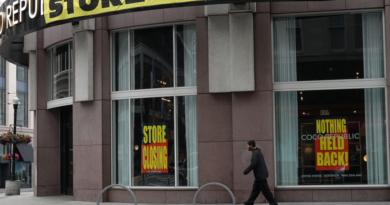Banking regulators are discussing a fund to ward off banking contagion among regional lenders after Silicon Valley Bank's failure
The Federal Deposit Insurance Corp. and the Federal Reserve are weighing creating a fund that would allow regulators to backstop more deposits at banks that run into trouble following Silicon Valley Bank’s collapse.
Regulators discussed the new special vehicle in conversations with banking executives, according to people familiar with the matter. The hope is that setting up such a vehicle would reassure depositors and help contain any panic, said the people. They asked not to be identified because the talks weren’t public.
A representative for the Federal Reserve declined to comment. Representatives at the FDIC didn’t immediately respond to a request for comment.
The vehicle is part of the agency’s contingency planning as concern spreads about the health of smaller banks focused on the venture capital and startup communities.
Separately, the FDIC on Saturday queried officials from multiple small- and mid-sized lenders, including First Republic Bank, about their financial situations, according to people with knowledge of the conversations who asked not to be identified because the discussions were private.
Fears Spread
First Republic’s stock had tumbled 15% on Friday, extending the bank’s slide to 34% for the week. The firm told investors in a statement that its liquidity remained strong and that its deposit base was very diversified.
Representatives for San Francisco-based First Republic and the FDIC didn’t immediately respond to requests for comment on the interactions.
A number of other regional lenders also saw their stock plunge on SVB’s collapse, prompting their own assurances of financial stability.
Phoenix-based Western Alliance Bancorp pointed to its strong deposits and robust liquidity after its stock sank to its lowest since November 2020 on Friday.
That same day, when PacWest Bancorp shares dropped 38%, Chief Executive Officer Paul Taylor said that the firm is a “well-performing, well-diversified” commercial bank.
Representatives for Western Alliance and PacWest didn’t immediately respond to requests for comment.
SVB became the biggest US lender to fail in more than a decade on Friday, after a tumultuous week that saw an unsuccessful attempt to raise capital and a cash exodus from the startups that fueled its rise. California state watchdogs took possession of the bank, which was valued at more than $40 billion as recently as last year.
–With assistance from Katanga Johnson, Heather Perlberg and Lydia Beyoud.
Fortune‘s CFO Daily newsletter is the must-read analysis every finance professional needs to get ahead. Sign up today.


